Congratulations to the 2023 Fastcase 50 award winners
Click here to see the Fastcase 50 Class of 2023!
Honoring the law’s smartest, most courageous innovators, techies, visionaries, & leaders. Lawyer or nonlawyer, techie or nontechie, anyone is eligible.
Created in 2011, each year the Fastcase 50 award honors a diverse group of lawyers, legal technologists, policymakers, judges, law librarians, bar association executives, and people from all walks of life. In many cases, honorees are well known, but in many others, the award recognizes people who have made important, but unheralded contributions.
“When we look back at the pandemic era, we will see it as a great reset in our attitudes and assumptions about legal services,” said Fastcase CEO Ed Walters. “Even if they have had to spend more time on Zoom this year than they had planned, the 2022 class of honorees is making profound changes for the next generation of law. We celebrate these impactful advocates and inspiring innovators who are shaping the future under incredibly challenging circumstances.”
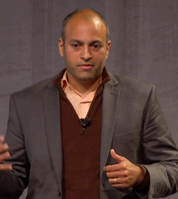 Raj Abhyanker
CEO, LegalForce
Raj Abhyanker is a serial entrepreneur who is innovating in the field of retail legal services. He co-founded Trademarkia, which served as the world’s largest trademark firm as well as providing a software service: a visual search engine for brands, logos, and government information. Raj and his team morphed Trademarkia into LegalForce RAPC Worldwide – which operates both a website for services as well as a retail storefront in Palo Alto for trademarks and legal services.
Raj Abhyanker
CEO, LegalForce
Raj Abhyanker is a serial entrepreneur who is innovating in the field of retail legal services. He co-founded Trademarkia, which served as the world’s largest trademark firm as well as providing a software service: a visual search engine for brands, logos, and government information. Raj and his team morphed Trademarkia into LegalForce RAPC Worldwide – which operates both a website for services as well as a retail storefront in Palo Alto for trademarks and legal services.
 Stephen Allen
Head of Global Legal Services Transformation, PricewaterhouseCoopers
PwC has a new take on the New Normal: it has set up a consulting practice to help in-house counsel better retain and manage outside counsel to their strategic advantage. And the firm has tapped Magic Circle lawyer, blogger, and legal entrepreneur Stephen Allen to lead the effort worldwide. Allen has said that he will use three metrics to measure the efforts of legal services providers: efficiency, compliance and control, and business insight (which he describes as how outside advice becomes embedded in the company’s work). Allen’s work focuses not just on making legal services better, but making clients better consumers as well.
Stephen Allen
Head of Global Legal Services Transformation, PricewaterhouseCoopers
PwC has a new take on the New Normal: it has set up a consulting practice to help in-house counsel better retain and manage outside counsel to their strategic advantage. And the firm has tapped Magic Circle lawyer, blogger, and legal entrepreneur Stephen Allen to lead the effort worldwide. Allen has said that he will use three metrics to measure the efforts of legal services providers: efficiency, compliance and control, and business insight (which he describes as how outside advice becomes embedded in the company’s work). Allen’s work focuses not just on making legal services better, but making clients better consumers as well.
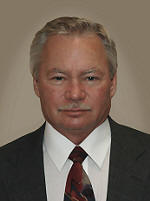 Tom Barnett
Executive Director, State Bar of South Dakota
One of the quieter success stories in the future of law comes from Pierre, South Dakota, where Executive Director Tom Barnett for years has been reaching across the digital divide and innovating around the practice of law in rural communities. For years, the State Bar has created access to justice for communities unserved by high-speed Internet, creating and updating the popular Dakota Disc service on CD-ROM. This year, the State Bar also has worked with the South Dakota Legislature to create an incentive program to entice lawyers to serve rural areas of the state. The program may serve as a model for other rural areas, which face serious access-to-justice challenges as older lawyers retire. Tom also led the fight against J.A.I.L. for Judges – a referendum that would have had a citizen’s committee review whether the South Dakota Supreme Court “followed the law,” and would have threatened judges with the loss of their jobs and pensions if it were found that they didn’t. Tom worked tirelessly to defeat the referendum, which he saw as a threat to the rule of law and our judicial system.
Tom Barnett
Executive Director, State Bar of South Dakota
One of the quieter success stories in the future of law comes from Pierre, South Dakota, where Executive Director Tom Barnett for years has been reaching across the digital divide and innovating around the practice of law in rural communities. For years, the State Bar has created access to justice for communities unserved by high-speed Internet, creating and updating the popular Dakota Disc service on CD-ROM. This year, the State Bar also has worked with the South Dakota Legislature to create an incentive program to entice lawyers to serve rural areas of the state. The program may serve as a model for other rural areas, which face serious access-to-justice challenges as older lawyers retire. Tom also led the fight against J.A.I.L. for Judges – a referendum that would have had a citizen’s committee review whether the South Dakota Supreme Court “followed the law,” and would have threatened judges with the loss of their jobs and pensions if it were found that they didn’t. Tom worked tirelessly to defeat the referendum, which he saw as a threat to the rule of law and our judicial system.
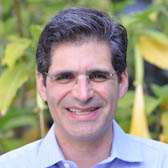 Josh Becker
CEO, Lex Machina
In 2013, law schools are incubating a number of legal startups. But in 2006, when Stanford Law Professor Mark Lemley started the Intellectual Property Litigation Clearinghouse, the idea was unheard of. The idea was simple – to collect real-time data on IP litigation. The project grew so large that it spun out of Stanford Law School to become commercial venture Lex Machina. The company, now under Josh Becker’s leadership, uses machine learning and natural language processing techniques to extract predictive analytics from what has now become one of the world’s largest IP law databases. While pursuing his JD/MBA at Stanford, Josh also started the Board Fellows Program, which places Stanford Business School students on the boards of nonprofits.
Josh Becker
CEO, Lex Machina
In 2013, law schools are incubating a number of legal startups. But in 2006, when Stanford Law Professor Mark Lemley started the Intellectual Property Litigation Clearinghouse, the idea was unheard of. The idea was simple – to collect real-time data on IP litigation. The project grew so large that it spun out of Stanford Law School to become commercial venture Lex Machina. The company, now under Josh Becker’s leadership, uses machine learning and natural language processing techniques to extract predictive analytics from what has now become one of the world’s largest IP law databases. While pursuing his JD/MBA at Stanford, Josh also started the Board Fellows Program, which places Stanford Business School students on the boards of nonprofits.
 Josh Blackman
Assistant Professor, South Texas College of Law
This year’s Fastcase 50 is deep with quantitative legal theorists – and Josh Blackman is a maverick law professor at the heart of this big data revolution in law. Josh is the founder of Fantasy SCOTUS, essentially a prediction market for U.S. Supreme Court decisions, and of the Harlan Institute, which sponsors a Fantasy SCOTUS competition for high school students. He has written on subjects as wide-ranging as tort law for robotics and a book on the history of the Affordable Care Act in the courts. Did we mention that he’s been a law professor for less than a year?
Josh Blackman
Assistant Professor, South Texas College of Law
This year’s Fastcase 50 is deep with quantitative legal theorists – and Josh Blackman is a maverick law professor at the heart of this big data revolution in law. Josh is the founder of Fantasy SCOTUS, essentially a prediction market for U.S. Supreme Court decisions, and of the Harlan Institute, which sponsors a Fantasy SCOTUS competition for high school students. He has written on subjects as wide-ranging as tort law for robotics and a book on the history of the Affordable Care Act in the courts. Did we mention that he’s been a law professor for less than a year?
 Paulette Brown
Partner at Edwards Wildman, and Uncontested Nominee for President of the ABA
At the American Bar Association’s midyear meeting in Dallas earlier this year, Paulette Brown wasn’t simply nominated to be the new President of the ABA in 2015. Her nomination was uncontested and was met by a standing ovation from the nominating committee. Brown would be the first African-American woman to serve as ABA President. She serves as a partner and Chief Diversity Officer at Edwards Wildman, after serving in numerous roles inside corporate legal departments and in law firms.
Paulette Brown
Partner at Edwards Wildman, and Uncontested Nominee for President of the ABA
At the American Bar Association’s midyear meeting in Dallas earlier this year, Paulette Brown wasn’t simply nominated to be the new President of the ABA in 2015. Her nomination was uncontested and was met by a standing ovation from the nominating committee. Brown would be the first African-American woman to serve as ABA President. She serves as a partner and Chief Diversity Officer at Edwards Wildman, after serving in numerous roles inside corporate legal departments and in law firms.
 Matthew Burnett
Director, Immigration Advocates Network
Matthew Burnett directs Immigration Advocates Network, a collaborative project between Pro Bono Net and 11 leading immigration advocacy and legal support organizations. Faced with providing legal direction to more than 11 million people in a fast-changing area of law, IAN has developed multilingual websites and mobile apps to help low and moderate-income people to answer questions about their eligibility for citizenship, to better understand the naturalization process, and to prepare for the naturalization tests. IAN’s CitizenshipWorks project won a Webby Award as the Best Legal Website of 2012.
Matthew Burnett
Director, Immigration Advocates Network
Matthew Burnett directs Immigration Advocates Network, a collaborative project between Pro Bono Net and 11 leading immigration advocacy and legal support organizations. Faced with providing legal direction to more than 11 million people in a fast-changing area of law, IAN has developed multilingual websites and mobile apps to help low and moderate-income people to answer questions about their eligibility for citizenship, to better understand the naturalization process, and to prepare for the naturalization tests. IAN’s CitizenshipWorks project won a Webby Award as the Best Legal Website of 2012.
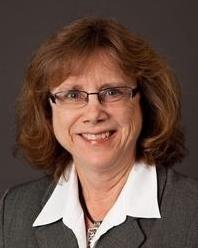 Cindy Chick
Global Manager of Library Systems, Latham & Watkins
Cindy Chick once said, “I think a law librarian in a law firm setting is a hero on an almost daily basis.” And indeed, Cindy Chick is herself a hero to many in the legal technology world. For years, she co-published LLRX, the go-to online reference for legal research, information policy, international legal resources, and product reviews. For the last 13 years, she has worked to incorporate new technology at Latham & Watkins, one of the nation’s largest firms.
Cindy Chick
Global Manager of Library Systems, Latham & Watkins
Cindy Chick once said, “I think a law librarian in a law firm setting is a hero on an almost daily basis.” And indeed, Cindy Chick is herself a hero to many in the legal technology world. For years, she co-published LLRX, the go-to online reference for legal research, information policy, international legal resources, and product reviews. For the last 13 years, she has worked to incorporate new technology at Latham & Watkins, one of the nation’s largest firms.
 Aviva Cuyler
Founder & CEO, JD Supra
As Aviva Cuyler tells the story, she was “in the midst of a successful law career when a brainstorm hit. Toiling late nights over some pre-trial motions, she thought: why hasn’t someone harnessed the power of the Internet to allow lawyers to share their public work product with each other and potential clients?” No one had, so in 2008, she did, founding JD Supra as a way for lawyers to share their legal documents, and their expertise, with the world. Today, working from Janis Joplin’s former house in Sausalito, Ca., JD Supra distributes law firm advisories, blog posts, articles, and other substantive content to more than 200,000 subscribers across industries and social media platforms.
Aviva Cuyler
Founder & CEO, JD Supra
As Aviva Cuyler tells the story, she was “in the midst of a successful law career when a brainstorm hit. Toiling late nights over some pre-trial motions, she thought: why hasn’t someone harnessed the power of the Internet to allow lawyers to share their public work product with each other and potential clients?” No one had, so in 2008, she did, founding JD Supra as a way for lawyers to share their legal documents, and their expertise, with the world. Today, working from Janis Joplin’s former house in Sausalito, Ca., JD Supra distributes law firm advisories, blog posts, articles, and other substantive content to more than 200,000 subscribers across industries and social media platforms.
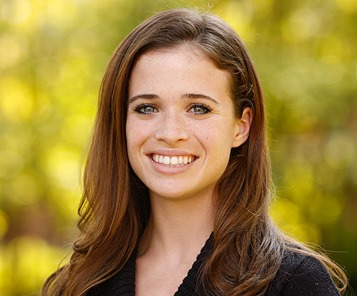 Elizabeth Dobbins
UVA Law Class of 2013
Elizabeth Dobbins
UVA Law Class of 2013
Elizabeth Dobbins is the first female graduate of the Virginia Military Institute to attend UVA Law, from which she just graduated. She served in the Marine Corps, where she is a 1st Lieutenant, before and during law school. “You think if you have a tolerance for difficulty, then you can do anything difficult,” Dobbins said recently. “But law school’s difficult in a different way.” That may be in part because Dobbins was busy: working on a lawsuit challenging the DoD’s former policy of barring women in combat, writing for the Charlottesville newspaper The Daily Progress, co-chairing the Feminist Legal Forum, serving in various roles in the JAG School, and working in the Special Collections division of the UVA Law Library. While in school, she was awarded the Mary Claiborne and Roy H. Ritter Prize, given to students exemplifying the values of honor, integrity and character. Just before her graduation from law school this summer, Dobbins signed on for a five-year commitment to serve as a Judge Advocate with the Marine JAG Corps.
 Erin Egan
Chief Privacy Officer, Facebook
With more than a billion users from around the world sharing some of the most personal information about their lives on its site, Facebook needed expertise in privacy policy in 2011. It had recently settled privacy charges with the FTC, and needed policy guidance in Washington. So when it came time for the company to hire a new Chief Privacy Officer for Policy, it tapped Erin Egan, the DC-based co-chair of Covington & Burling's global privacy and data security practice. After Egan’s interview at the company’s HQ in Menlo Park, COO Cheryl Sandberg mailed her the iconic poster from Facebook’s office: “What would you do if you weren’t afraid?” She has been running Facebook’s DC Privacy Policy shop ever since.
Erin Egan
Chief Privacy Officer, Facebook
With more than a billion users from around the world sharing some of the most personal information about their lives on its site, Facebook needed expertise in privacy policy in 2011. It had recently settled privacy charges with the FTC, and needed policy guidance in Washington. So when it came time for the company to hire a new Chief Privacy Officer for Policy, it tapped Erin Egan, the DC-based co-chair of Covington & Burling's global privacy and data security practice. After Egan’s interview at the company’s HQ in Menlo Park, COO Cheryl Sandberg mailed her the iconic poster from Facebook’s office: “What would you do if you weren’t afraid?” She has been running Facebook’s DC Privacy Policy shop ever since.
 Anne Ellis
Senior Director of Librarian Relations, Thomson Reuters Legal
Real estate is all about location. But great service is all about relationships, and nobody has better relationships in the law library community than Thomson Reuters’ Anne Ellis. Anne has more than 30 years invested in the law library community – as a law firm librarian, Senior Director of Librarian Relations for Thompson Reuters, and past Chair of the American Association of Law Libraries’ Private Law Libraries Special Interest Section. Anne exemplifies the very model of professional relationships between publishers and law librarian relations.
Anne Ellis
Senior Director of Librarian Relations, Thomson Reuters Legal
Real estate is all about location. But great service is all about relationships, and nobody has better relationships in the law library community than Thomson Reuters’ Anne Ellis. Anne has more than 30 years invested in the law library community – as a law firm librarian, Senior Director of Librarian Relations for Thompson Reuters, and past Chair of the American Association of Law Libraries’ Private Law Libraries Special Interest Section. Anne exemplifies the very model of professional relationships between publishers and law librarian relations.
 Bart Epstein
General Counsel and Chief Strategy Officer, Tutor.com
When he isn't busy at his day job as General Counsel & Chief Strategy Officer at Tutor.com, Bart Epstein serves as President of Gifts for the Homeless, a nonprofit that collects and distributes thousands of bags of donated clothing to more than 70 homeless shelters, soup kitchens and transitional housing facilities. The nonprofit collects enough donations each year through its Battle of the Law Firm Bands concert to purchase more than $1 million worth of warm clothing and blankets for homeless people. Bart is also an instrument rated pilot who serves as a volunteer for Angel Flight, which provides free emergency medical flights, as well as a volunteer pilot for NASA.
Bart Epstein
General Counsel and Chief Strategy Officer, Tutor.com
When he isn't busy at his day job as General Counsel & Chief Strategy Officer at Tutor.com, Bart Epstein serves as President of Gifts for the Homeless, a nonprofit that collects and distributes thousands of bags of donated clothing to more than 70 homeless shelters, soup kitchens and transitional housing facilities. The nonprofit collects enough donations each year through its Battle of the Law Firm Bands concert to purchase more than $1 million worth of warm clothing and blankets for homeless people. Bart is also an instrument rated pilot who serves as a volunteer for Angel Flight, which provides free emergency medical flights, as well as a volunteer pilot for NASA.
 Ron Friedmann
Consultant, Fireman & Co.
Ron Friedman is a big thinker around the transformation of legal services. He founded the KM Leaders groups in New York and Washington, DC, and he has served both inside law firms and private companies. Ron practiced briefly, then served as a consultant at Bain, both of which served him when he was the Director of Computer Applications at WilmerHale (then Wilmer, Cutler & Pickering) and CIO at Mintz Levin. And Ron’s strategic legal technology blog at Prism Legal is a must-read for those trying to figure out what’s next in the new normal.
Ron Friedmann
Consultant, Fireman & Co.
Ron Friedman is a big thinker around the transformation of legal services. He founded the KM Leaders groups in New York and Washington, DC, and he has served both inside law firms and private companies. Ron practiced briefly, then served as a consultant at Bain, both of which served him when he was the Director of Computer Applications at WilmerHale (then Wilmer, Cutler & Pickering) and CIO at Mintz Levin. And Ron’s strategic legal technology blog at Prism Legal is a must-read for those trying to figure out what’s next in the new normal.
 Sara Frug
Associate Director, Legal Information Institute (LII), Cornell Law School
Cornell’s Legal Information Institute is an inspiration to publishers, courts, and open-government advocates around the world. And Sara Frug runs the team of engineers that runs the LII. For the most part, Sara’s work is behind the scenes. But you can see her fingerprints on everything, from the CFR and data visualization projects to Wex. From information architecture to the composition and order in which elements load on the pages, Sara is an unsung hero of the open government movement, and a model for how Legal Information Institutes around the world can have a global impact with a small team of smart and dedicated people.
Sara Frug
Associate Director, Legal Information Institute (LII), Cornell Law School
Cornell’s Legal Information Institute is an inspiration to publishers, courts, and open-government advocates around the world. And Sara Frug runs the team of engineers that runs the LII. For the most part, Sara’s work is behind the scenes. But you can see her fingerprints on everything, from the CFR and data visualization projects to Wex. From information architecture to the composition and order in which elements load on the pages, Sara is an unsung hero of the open government movement, and a model for how Legal Information Institutes around the world can have a global impact with a small team of smart and dedicated people.
 Richard Granat
Founder & CEO, The Granat Group
Richard Granat calls himself an “explorer of the outer limits of legal space,” and rightly so. Richard has been an innovator in the delivery of legal services for more than 30 years, since his work forming what is now the Legal Services Corporation. Not only a serial entrepreneur, Richard is something of a serial processor, with multiple projects proceeding at once at the frontier of law. As of this writing, he runs (at least) Granat Legal Services, one of the nation’s first virtual law offices; a self-help website for Maryland family law; SmartLegalForms, a legal forms company; and DirectLaw, a company that helps lawyers provide legal assistance as a service, among other ventures. He also sits on the board of advisors for four early-stage legal startups. Richard also has been pressing for liberalization of the regulation of the legal profession, especially in unauthorized practice of law and nonlawyer investment in law firms, as means to better serve middle-class consumers of legal services.
Richard Granat
Founder & CEO, The Granat Group
Richard Granat calls himself an “explorer of the outer limits of legal space,” and rightly so. Richard has been an innovator in the delivery of legal services for more than 30 years, since his work forming what is now the Legal Services Corporation. Not only a serial entrepreneur, Richard is something of a serial processor, with multiple projects proceeding at once at the frontier of law. As of this writing, he runs (at least) Granat Legal Services, one of the nation’s first virtual law offices; a self-help website for Maryland family law; SmartLegalForms, a legal forms company; and DirectLaw, a company that helps lawyers provide legal assistance as a service, among other ventures. He also sits on the board of advisors for four early-stage legal startups. Richard also has been pressing for liberalization of the regulation of the legal profession, especially in unauthorized practice of law and nonlawyer investment in law firms, as means to better serve middle-class consumers of legal services.
 Itai Gurari
CEO & Co-Founder, Judicata
Itai Gurari is building a new way of conducting legal research that goes beyond the literal search for keywords – looking instead for concepts and meaning in search phrases and in data. Judicata uses fields and semantic filtering to sort and filter legal text with the goal of providing lawyers with information more relevant to their searches. Itai has a pedigree for legal research – he previously built a legal research service called TraceLaw, and is one of a small handful of engineers to work on the legal research engine in Google Scholar.
Itai Gurari
CEO & Co-Founder, Judicata
Itai Gurari is building a new way of conducting legal research that goes beyond the literal search for keywords – looking instead for concepts and meaning in search phrases and in data. Judicata uses fields and semantic filtering to sort and filter legal text with the goal of providing lawyers with information more relevant to their searches. Itai has a pedigree for legal research – he previously built a legal research service called TraceLaw, and is one of a small handful of engineers to work on the legal research engine in Google Scholar.
 Marci Harris
CEO, POPVOX
Marci Harris is solving the problem of communication with Congress, giving people a voice in government by bringing constituent engagement to the art of lawmaking through her company POPVOX. Widely heralded as one of the best eDemocacy programs in the country, POPVOX allows individuals and advocacy groups to comment on bills and show their support or opposition to legislative decisions. POPVOX provides an avenue for open conversations with Congressional representatives and government officials in real time, as bills are drafted and amended, -- and in a way that is civil, smart, neutral, and transparent.
Marci Harris
CEO, POPVOX
Marci Harris is solving the problem of communication with Congress, giving people a voice in government by bringing constituent engagement to the art of lawmaking through her company POPVOX. Widely heralded as one of the best eDemocacy programs in the country, POPVOX allows individuals and advocacy groups to comment on bills and show their support or opposition to legislative decisions. POPVOX provides an avenue for open conversations with Congressional representatives and government officials in real time, as bills are drafted and amended, -- and in a way that is civil, smart, neutral, and transparent.
 Mark Harris
CEO & Founder, Axiom Law
There are a handful of law firms in America trying to reinvent the law firm model. But Mark Harris and Axiom Law might be running the largest, most lucrative, and most disruptive of them. Axiom Law is a 1,000-person firm, made mostly of lawyers who left some of the nation’s largest law firms. Axiom Law uses a mix of insourcing secondments into companies, outsourcing, and project work that strikes the balance between the commitment of full-time hires and over-reliance on outside counsel.
Mark Harris
CEO & Founder, Axiom Law
There are a handful of law firms in America trying to reinvent the law firm model. But Mark Harris and Axiom Law might be running the largest, most lucrative, and most disruptive of them. Axiom Law is a 1,000-person firm, made mostly of lawyers who left some of the nation’s largest law firms. Axiom Law uses a mix of insourcing secondments into companies, outsourcing, and project work that strikes the balance between the commitment of full-time hires and over-reliance on outside counsel.
 Allan Head
Executive Director, North Carolina Bar Association
Allan Head is one of the longest-serving bar executives in the nation, with nearly four decades of service to the North Carolina Bar Association, and the last 32 years as its executive director. During Allan’s tenure, the NCBA grew from 3,500 members to more than 15,000. The organization’s budget has grown about 35-fold, and its staff has increased tenfold. The NCBA is one of the best run and best managed bar associations in the nation. For his work mentoring other bar executives and his professionalism, the National Association of Bar Executives in 2010 awarded Allan the Bolton Award for Outstanding Bar Leadership, the association’s highest honor.
Allan Head
Executive Director, North Carolina Bar Association
Allan Head is one of the longest-serving bar executives in the nation, with nearly four decades of service to the North Carolina Bar Association, and the last 32 years as its executive director. During Allan’s tenure, the NCBA grew from 3,500 members to more than 15,000. The organization’s budget has grown about 35-fold, and its staff has increased tenfold. The NCBA is one of the best run and best managed bar associations in the nation. For his work mentoring other bar executives and his professionalism, the National Association of Bar Executives in 2010 awarded Allan the Bolton Award for Outstanding Bar Leadership, the association’s highest honor.
 William (Bill) Henderson
Professor of Law and Director, Center on the Global Legal Profession, Indiana University Maurer School of Law
As one of the very few law professors who studies the business of law, Bill Henderson's work has had profound effect outside the academy. One of his most recent works in Pepperdine Law Review, A Blueprint for Change, begins with the observation: “United States legal education needs to change. Simply stated, there is a shrinking demand for the product we offer” and concludes with a proposal for a consortium of change-agent law schools to teach lawyering skills in the third year. With others, Bill introduced a new first-year course at the IU School of Law in 2009 called The Legal Profession, a mandatory four-hour course that covers the ethics, competencies, and economics of the legal profession. The course uses legal ethics and the law of lawyering as the spine of a course that educates law students on the competencies they must develop to be successful lawyers in the 21st Century.
William (Bill) Henderson
Professor of Law and Director, Center on the Global Legal Profession, Indiana University Maurer School of Law
As one of the very few law professors who studies the business of law, Bill Henderson's work has had profound effect outside the academy. One of his most recent works in Pepperdine Law Review, A Blueprint for Change, begins with the observation: “United States legal education needs to change. Simply stated, there is a shrinking demand for the product we offer” and concludes with a proposal for a consortium of change-agent law schools to teach lawyering skills in the third year. With others, Bill introduced a new first-year course at the IU School of Law in 2009 called The Legal Profession, a mandatory four-hour course that covers the ethics, competencies, and economics of the legal profession. The course uses legal ethics and the law of lawyering as the spine of a course that educates law students on the competencies they must develop to be successful lawyers in the 21st Century.
 Terry Hill
Director of Programs, The Florida Bar
Terry Hill
Director of Programs, The Florida Bar
Terry Hill runs some of the most innovative bar programs in the country as Director of Programs for The Florida Bar. He oversees Legal Publications, Legal Specialization & Education, Professional Development, Meetings & Conventions, Law Office Management Assistance Service and Public Service Programs. Terry is also the CLE Director and the staff liaison to The Florida Bar Member Benefits Committee. A large part of his focus is on continuing legal education programming, marketing, and delivery methods. Before law school, Terry served in the U.S. Navy in Pearl Harbor and San Diego.
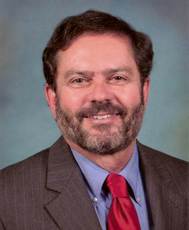 Ken Hirsh
Director of Law Library and Information Technology, Professor of Practice, University of Cincinnati College of Law
Ken Hirsh has been urging the application of technology in legal education and law practice for 24 years. At Duke University School of Law he created its first local area network and one of the first computing services departments at a law school. He was instrumental in putting the school on the Web a year after Tim Berners-Lee had created it. With Wayne Miller, Ken co-wrote a seminal article on introducing law practice technology to the curriculum and created the course at Duke in 2005. He introduced an updated version of the course with Shannon Kemen at the University of Cincinnati College of Law. Ken is a member of the CALI Board of Directors and is now working to update the nationally known Securities Lawyer's Deskbook, the Robert S. Marx Law Library's contribution to the Free Law Movement.
Ken Hirsh
Director of Law Library and Information Technology, Professor of Practice, University of Cincinnati College of Law
Ken Hirsh has been urging the application of technology in legal education and law practice for 24 years. At Duke University School of Law he created its first local area network and one of the first computing services departments at a law school. He was instrumental in putting the school on the Web a year after Tim Berners-Lee had created it. With Wayne Miller, Ken co-wrote a seminal article on introducing law practice technology to the curriculum and created the course at Duke in 2005. He introduced an updated version of the course with Shannon Kemen at the University of Cincinnati College of Law. Ken is a member of the CALI Board of Directors and is now working to update the nationally known Securities Lawyer's Deskbook, the Robert S. Marx Law Library's contribution to the Free Law Movement.
 Phil Hoare
Vice President & Chief Information Officer, Wilson Sonsini, Goodrich & Rosati
Wilson Sonsini is one of the techiest law firms in the world, with sophisticated tech clients and lawyers all working in the same network. And running it all is Phil Hoare, who has served as the firms CIO for almost 20 years, effectively there even was a legal Internet. At a time when many law firms are bolting down to enforce security and productivity, Phil’s approach has been different. As described by Greg Lambert of 3 Geeks and a Law Blog, Phil’s take is that, “My job as CIO is to make sure that the attorneys are engaged in the practice of law, and we will support whatever platform or device they wish to use in order to keep them engaged in their practice.”
Phil Hoare
Vice President & Chief Information Officer, Wilson Sonsini, Goodrich & Rosati
Wilson Sonsini is one of the techiest law firms in the world, with sophisticated tech clients and lawyers all working in the same network. And running it all is Phil Hoare, who has served as the firms CIO for almost 20 years, effectively there even was a legal Internet. At a time when many law firms are bolting down to enforce security and productivity, Phil’s approach has been different. As described by Greg Lambert of 3 Geeks and a Law Blog, Phil’s take is that, “My job as CIO is to make sure that the attorneys are engaged in the practice of law, and we will support whatever platform or device they wish to use in order to keep them engaged in their practice.”
 Tim Hwang
Founder & Human Partner, Robot, Robot & Hwang LLP
Tim Hwang does more than think and pontificate about how algorithms and computing power will change the practice of law – he skipped a few steps and created a law firm with his robot overlords, Robot, Robot & Hwang LLP. Tim also ran the inaugural CodeX FutureLaw Conference at the Stanford Center for Legal Informatics this past spring, where other insightful thinkers and entrepreneurs collaborated about once-whimsical but now essential topics like big data and volume delivery of legal services and, of course, robot law. This kind of conference planning would be daunting to most, but was a walk in the park for Tim, who founded ROFLCon, the Awesome Foundation for the Arts and Sciences, and the Web Ecology Project.
Tim Hwang
Founder & Human Partner, Robot, Robot & Hwang LLP
Tim Hwang does more than think and pontificate about how algorithms and computing power will change the practice of law – he skipped a few steps and created a law firm with his robot overlords, Robot, Robot & Hwang LLP. Tim also ran the inaugural CodeX FutureLaw Conference at the Stanford Center for Legal Informatics this past spring, where other insightful thinkers and entrepreneurs collaborated about once-whimsical but now essential topics like big data and volume delivery of legal services and, of course, robot law. This kind of conference planning would be daunting to most, but was a walk in the park for Tim, who founded ROFLCon, the Awesome Foundation for the Arts and Sciences, and the Web Ecology Project.
 Bob Berring, Jr.
Walter Perry Johnson Professor of Law, UC Berkeley School of Law
Most lawyers learned about legal research from law school professors, and most of those professors learned from Bob Berring, the granddaddy of legal research. When people say that Bob Berring wrote the book on legal research, they mean that he literally wrote the book on legal research. Two of them, actually: Finding the Law and the Legal Research Survival Manual. He also created the award-winning video series Legal Research for the 21st Century. In 2006, the American Association of Law Libraries named Professor Berring’s writing the most influential work on the profession of law librarianship of the past 50 years.
Bob Berring, Jr.
Walter Perry Johnson Professor of Law, UC Berkeley School of Law
Most lawyers learned about legal research from law school professors, and most of those professors learned from Bob Berring, the granddaddy of legal research. When people say that Bob Berring wrote the book on legal research, they mean that he literally wrote the book on legal research. Two of them, actually: Finding the Law and the Legal Research Survival Manual. He also created the award-winning video series Legal Research for the 21st Century. In 2006, the American Association of Law Libraries named Professor Berring’s writing the most influential work on the profession of law librarianship of the past 50 years.
 Daniel Martin Katz
Co-Founder & Co-Director, ReInvent Law; Assistant Professor of Law, Michigan State University
Daniel Martin Katz is one half of a dynamic duo leading a revolution in legal technology. ReInvent Law, which he co-founded with fellow Fastcase 50 winner Renee Newman Knake, has gathered legal tech thinkers and doers to collaborate on how the delivery of legal services is being redefined, with conferences in Dubai, Silicon Valley, and London. Katz also has promoted a new, tech-savvy curriculum for law students, which he coined the syllabus for the “MIT School of Law.” He is practicing what he preaches: he taught a course this year called “Quantitative Analysis for Lawyers,” the slide decks and syllabus for which are available free online. Math will be on the exam.
Daniel Martin Katz
Co-Founder & Co-Director, ReInvent Law; Assistant Professor of Law, Michigan State University
Daniel Martin Katz is one half of a dynamic duo leading a revolution in legal technology. ReInvent Law, which he co-founded with fellow Fastcase 50 winner Renee Newman Knake, has gathered legal tech thinkers and doers to collaborate on how the delivery of legal services is being redefined, with conferences in Dubai, Silicon Valley, and London. Katz also has promoted a new, tech-savvy curriculum for law students, which he coined the syllabus for the “MIT School of Law.” He is practicing what he preaches: he taught a course this year called “Quantitative Analysis for Lawyers,” the slide decks and syllabus for which are available free online. Math will be on the exam.
 Renee Newman Knake
Co-Founder & Co-Director, ReInvent Law; Associate Professor of Law, Michigan State University
Renee Newman Knake co-founded with fellow Fastcase 50 winner Daniel Martin Katz the ReInvent Law Laboratory at Michigan State University School of Law. The team has incubated student projects to innovate around the delivery of legal services, and convened conversations among forward thinkers around the world. She has spoken extensively about the need for lawyers to be entrepreneurs in rethinking the business of law: (law)ntrepreneurs. Knake also co-directs a summer program for intensive study of new legal services models and markets in London.
Renee Newman Knake
Co-Founder & Co-Director, ReInvent Law; Associate Professor of Law, Michigan State University
Renee Newman Knake co-founded with fellow Fastcase 50 winner Daniel Martin Katz the ReInvent Law Laboratory at Michigan State University School of Law. The team has incubated student projects to innovate around the delivery of legal services, and convened conversations among forward thinkers around the world. She has spoken extensively about the need for lawyers to be entrepreneurs in rethinking the business of law: (law)ntrepreneurs. Knake also co-directs a summer program for intensive study of new legal services models and markets in London.
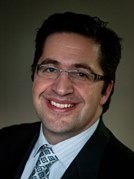 Colin LaChance
President & CEO, Canadian Legal Information Institute (CanLII)
CanLII’s mission is to provide free access to Canadian law, which for a long time has meant primary law. Under the leadership of Colin LaChance, the organization has even begun to branch out into new frontiers of secondary sources. Through the recent deployment of the CanLII API, or application programming interface, CanLII will allow software developers to create innovative applications with primary law materials. The organization is also launching a community site, where legal scholars and other interested people will be able to offer commentary and provide analysis of Canadian law. Colin’s work lies right at the intersection of public law, technology, and innovation.
Colin LaChance
President & CEO, Canadian Legal Information Institute (CanLII)
CanLII’s mission is to provide free access to Canadian law, which for a long time has meant primary law. Under the leadership of Colin LaChance, the organization has even begun to branch out into new frontiers of secondary sources. Through the recent deployment of the CanLII API, or application programming interface, CanLII will allow software developers to create innovative applications with primary law materials. The organization is also launching a community site, where legal scholars and other interested people will be able to offer commentary and provide analysis of Canadian law. Colin’s work lies right at the intersection of public law, technology, and innovation.
 Steve Lastres
Director of Library & Knowledge Management, Debevoise & Plimpton LLP
Steve Lastres is a leading voice pushing for innovative solutions to how information professionals working in law firms can increase their value to their organizations. He is one of the founders and editors of the highly collaborative On Firmer Ground blog, which covers the challenges facing contemporary law firm librarians. He is a frequent speaker about knowledge management and the trends reshaping the legal industry.
Steve Lastres
Director of Library & Knowledge Management, Debevoise & Plimpton LLP
Steve Lastres is a leading voice pushing for innovative solutions to how information professionals working in law firms can increase their value to their organizations. He is one of the founders and editors of the highly collaborative On Firmer Ground blog, which covers the challenges facing contemporary law firm librarians. He is a frequent speaker about knowledge management and the trends reshaping the legal industry.
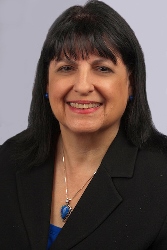 Carole Levitt
President & Founder, Internet for Lawyers
For more than 20 years, Carole Levitt has been thinking about legal research – how it works, how it might be better – and teaching others how to use the internet effectively in the practice of law. A nationally recognized speaker, Carole dives into the details of how legal research search engines and automated citators actually work. She is the author of several books about online legal research, including the two-volume ABA publication “Find Info Like a Pro” series and is a co-author of “The Cybersleuth's Guide to the Internet”, one of the leading sources for legal research services and resources.
Carole Levitt
President & Founder, Internet for Lawyers
For more than 20 years, Carole Levitt has been thinking about legal research – how it works, how it might be better – and teaching others how to use the internet effectively in the practice of law. A nationally recognized speaker, Carole dives into the details of how legal research search engines and automated citators actually work. She is the author of several books about online legal research, including the two-volume ABA publication “Find Info Like a Pro” series and is a co-author of “The Cybersleuth's Guide to the Internet”, one of the leading sources for legal research services and resources.
 Daniel Lewis
Co-Founder & CEO, Ravel Law
Together with fellow Fastcase 50 winner Nik Reed, Daniel Lewis is creating innovative information visualization with legal data, specifically citation data, at Ravel Law. Dan is part of a new age in innovation in legal research, rethinking everything we know about how legal software works and making search results more visual, more meaningful, and easier to understand. He is a recent Stanford Law graduate and open-law advocate.
Daniel Lewis
Co-Founder & CEO, Ravel Law
Together with fellow Fastcase 50 winner Nik Reed, Daniel Lewis is creating innovative information visualization with legal data, specifically citation data, at Ravel Law. Dan is part of a new age in innovation in legal research, rethinking everything we know about how legal software works and making search results more visual, more meaningful, and easier to understand. He is a recent Stanford Law graduate and open-law advocate.
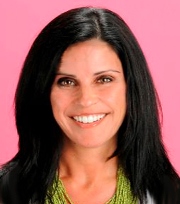 Adriana Linares
President & Founder, LawTech Partners
Adriana Linares is one of the most respected, knowledgeable, and active technology coaches for lawyers. She is a nationally recognized speaker on legal technology issues and helps to make lawyers more comfortable and effective with the ever-changing digital landscape. Adriana was also a member of the Planning Board of the ABA Techshow for four years, and remains an influential part of the ABA’s annual tech extravaganza.
Adriana Linares
President & Founder, LawTech Partners
Adriana Linares is one of the most respected, knowledgeable, and active technology coaches for lawyers. She is a nationally recognized speaker on legal technology issues and helps to make lawyers more comfortable and effective with the ever-changing digital landscape. Adriana was also a member of the Planning Board of the ABA Techshow for four years, and remains an influential part of the ABA’s annual tech extravaganza.
 Bruce MacEwen
President, Adam Smith, Esq.
With BigLaw reeling from crisis after crisis in the past five years, Bruce MacEwen’s “Growth is Dead” series published on his blog for Adam Smith, Esq. certainly created quite a buzz, and quite a bit of soul-searching, among observers of the legal industry. (The series has since been edited and cast in book form.) His thought-provoking and stimulating take on problems facing the economic model of law firms comes from a career spent both working in New York firms and as in-house counsel for the former powerhouse Morgan Stanley/Dean Witter. He works as a consultant providing strategic-assessment and leadership development services, among others, to large, complex law firms.
Bruce MacEwen
President, Adam Smith, Esq.
With BigLaw reeling from crisis after crisis in the past five years, Bruce MacEwen’s “Growth is Dead” series published on his blog for Adam Smith, Esq. certainly created quite a buzz, and quite a bit of soul-searching, among observers of the legal industry. (The series has since been edited and cast in book form.) His thought-provoking and stimulating take on problems facing the economic model of law firms comes from a career spent both working in New York firms and as in-house counsel for the former powerhouse Morgan Stanley/Dean Witter. He works as a consultant providing strategic-assessment and leadership development services, among others, to large, complex law firms.
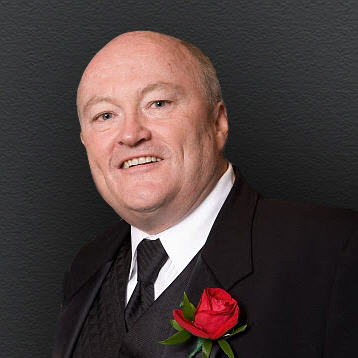 Kevin Marmion
President, William S. Hein & Company
Many executives have stories about working their way up, but Kevin Marmion has worked his way all the way up over his 40+ years at William S. Hein & Co. Kevin started at the company in 1970 as a part-time hand in the warehouse while he was in high school. As President, Marmion has been responsible for overseeing the operation of every division of the Hein Company including library services, traditional print products, microfilm, digital services and electronic services. In May 2000, under Marmion’s tutelage, the Hein Company launched HeinOnline, the company’s most successful product ever, moving the company from its traditional roots into the digital age. Marmion’s dedication, hard work and focus have made HeinOnline a leading award winning product in the legal research industry, and his company exemplifies the values of integrity, honesty, hard work, and focus.
Kevin Marmion
President, William S. Hein & Company
Many executives have stories about working their way up, but Kevin Marmion has worked his way all the way up over his 40+ years at William S. Hein & Co. Kevin started at the company in 1970 as a part-time hand in the warehouse while he was in high school. As President, Marmion has been responsible for overseeing the operation of every division of the Hein Company including library services, traditional print products, microfilm, digital services and electronic services. In May 2000, under Marmion’s tutelage, the Hein Company launched HeinOnline, the company’s most successful product ever, moving the company from its traditional roots into the digital age. Marmion’s dedication, hard work and focus have made HeinOnline a leading award winning product in the legal research industry, and his company exemplifies the values of integrity, honesty, hard work, and focus.
 Kingsley Martin
President & CEO, KMStandards LLC
Kingsley Martin has spent nearly the last decade coming up with innovative technological solutions for automating document assembly. His company leverages computers and technology to revolutionize the way standard contracts and other legal documents are created, which is transforming the way attorneys practice transactional law. While expert deal lawyers may have experience crafting hundreds of a particular type of document, Martin’s software harvests and analyzes hundreds of thousands of one kind of contracts, for example, and analyzes them for commonalities. The promise of his work is that, in the future, computers will not only drive your car, but they will put together the first draft of your contract work as well.
Kingsley Martin
President & CEO, KMStandards LLC
Kingsley Martin has spent nearly the last decade coming up with innovative technological solutions for automating document assembly. His company leverages computers and technology to revolutionize the way standard contracts and other legal documents are created, which is transforming the way attorneys practice transactional law. While expert deal lawyers may have experience crafting hundreds of a particular type of document, Martin’s software harvests and analyzes hundreds of thousands of one kind of contracts, for example, and analyzes them for commonalities. The promise of his work is that, in the future, computers will not only drive your car, but they will put together the first draft of your contract work as well.
 Dwight Opperman (in memoriam)
Former CEO, West Publishing Co.
This year marked the passing of a legend in law, former West Publishing Co. CEO Dwight Opperman. Opperman started at West fresh out of law school in 1951, cataloguing cases for the National Reporter System by hand. He rose through the ranks of the then-paper publishing business, but with a sense that change was coming. Later as CEO of West, Opperman made a big bet on electronic retrieval – first through searchable abstracts and then full text search – the system that would become Westlaw. And although many doubted the wisdom of West’s investment in technology that could cannibalize its core print publishing business, Opperman appears to have the better of this argument. Upon his passing, Chief Justice John Roberts issued a statement praising Opperman’s philanthropy and his commitment to the profession, and to judges in particular, noting his establishment of the Edward J. Devitt Distinguished Service to Justice Award in 1982 to recognize unsung heroes of the federal bench, as well as his efforts as trustee and board chairman of the Supreme Court Historical Society.
Dwight Opperman (in memoriam)
Former CEO, West Publishing Co.
This year marked the passing of a legend in law, former West Publishing Co. CEO Dwight Opperman. Opperman started at West fresh out of law school in 1951, cataloguing cases for the National Reporter System by hand. He rose through the ranks of the then-paper publishing business, but with a sense that change was coming. Later as CEO of West, Opperman made a big bet on electronic retrieval – first through searchable abstracts and then full text search – the system that would become Westlaw. And although many doubted the wisdom of West’s investment in technology that could cannibalize its core print publishing business, Opperman appears to have the better of this argument. Upon his passing, Chief Justice John Roberts issued a statement praising Opperman’s philanthropy and his commitment to the profession, and to judges in particular, noting his establishment of the Edward J. Devitt Distinguished Service to Justice Award in 1982 to recognize unsung heroes of the federal bench, as well as his efforts as trustee and board chairman of the Supreme Court Historical Society.
 Eric Mill
Software Developer, Sunlight Foundation
Eric Mill is an innovator in the open government movement and is shining the light on government data with his projects at the Sunlight Foundation. Eric’s work includes making and maintaining software (such as Sunlight’s Scout service, Congress API, and Android Congress app) allowing the public to see, search, sort, search, follow, and find information on issues important to them throughout the federal legislative process. Eric is showing the important role that engineers can play to make and analyze data in government works, and to help people understand lawmaking and the laws that govern them.
Eric Mill
Software Developer, Sunlight Foundation
Eric Mill is an innovator in the open government movement and is shining the light on government data with his projects at the Sunlight Foundation. Eric’s work includes making and maintaining software (such as Sunlight’s Scout service, Congress API, and Android Congress app) allowing the public to see, search, sort, search, follow, and find information on issues important to them throughout the federal legislative process. Eric is showing the important role that engineers can play to make and analyze data in government works, and to help people understand lawmaking and the laws that govern them.
 Charley Moore
Founder & Executive Chairman, Rocket Lawyer
One common problem being addressed by this year’s winners is providing better legal services to the vast middle class – people who aren’t wealthy enough to pay Wall Street lawyer rates, and aren’t indigent enough to qualify for legal aid. As the CEO of Rocket Lawyer, Charley Moore is driving the consumerization of legal services, with an eye to making repetitive tasks more accessible. Rocket Lawyer provides a combination of sample forms and lawyer referrals to triage and categorize the huge volume of consumer legal services needs. Legal services of the future will have a much stronger retail component, and Rocket Lawyer is innovating to help create that future business model today.
Charley Moore
Founder & Executive Chairman, Rocket Lawyer
One common problem being addressed by this year’s winners is providing better legal services to the vast middle class – people who aren’t wealthy enough to pay Wall Street lawyer rates, and aren’t indigent enough to qualify for legal aid. As the CEO of Rocket Lawyer, Charley Moore is driving the consumerization of legal services, with an eye to making repetitive tasks more accessible. Rocket Lawyer provides a combination of sample forms and lawyer referrals to triage and categorize the huge volume of consumer legal services needs. Legal services of the future will have a much stronger retail component, and Rocket Lawyer is innovating to help create that future business model today.
 Sharon Nelson
President, Virginia State Bar and President, Sensei Enterprises
When Sharon Nelson started Sensei Enterprises in 1997, the tech world was very different. Cloud computing usually involved a laptop and an airplane. Since then, Sharon has written 11 books, hundreds of articles, and has taught lawyers across the country about everything from security to forensics to e-discovery. This year, Sharon and her husband (and business partner) John Simek will rebalance their schedules as she serves as the President of the Virginia State Bar. They are accustomed to scheduling. Sharon is the Vice Chair of the American Bar Association’s Education Board and a former Chair of its Publishing Board; the Virginia Supreme Court also has appointed her to the Statewide E-Filing Committee beginning in 2010.
Sharon Nelson
President, Virginia State Bar and President, Sensei Enterprises
When Sharon Nelson started Sensei Enterprises in 1997, the tech world was very different. Cloud computing usually involved a laptop and an airplane. Since then, Sharon has written 11 books, hundreds of articles, and has taught lawyers across the country about everything from security to forensics to e-discovery. This year, Sharon and her husband (and business partner) John Simek will rebalance their schedules as she serves as the President of the Virginia State Bar. They are accustomed to scheduling. Sharon is the Vice Chair of the American Bar Association’s Education Board and a former Chair of its Publishing Board; the Virginia Supreme Court also has appointed her to the Statewide E-Filing Committee beginning in 2010.
 Jennifer Pahlka
Founder & Executive Director, Code for America
Jennifer Pahlka is re-imagining how government can harness the strengths of the Web. She created and leads Code For America, a project to fix America’s code infrastructure. The volunteers she works with promote openness, participation, and efficiency in municipal governments. Jennifer is currently serving as deputy CTO for government innovation with the White House Office of Science and Technology Policy.
Jennifer Pahlka
Founder & Executive Director, Code for America
Jennifer Pahlka is re-imagining how government can harness the strengths of the Web. She created and leads Code For America, a project to fix America’s code infrastructure. The volunteers she works with promote openness, participation, and efficiency in municipal governments. Jennifer is currently serving as deputy CTO for government innovation with the White House Office of Science and Technology Policy.
 John Phelps
CEO, State Bar of Arizona
As a retired Colonel in the U.S. Army JAG Corps, John Phelps knows a thing or two about determination and discipline. He heads one of the most organized bar associations in the country, and his impressive resume shows why: John has served in a variety of executive public-service positions, including as chief of staff of the General Services Administration and as deputy director of the Arizona Office of Homeland Security. Arizona lawyers can certainly feel secure with him running point for them.
John Phelps
CEO, State Bar of Arizona
As a retired Colonel in the U.S. Army JAG Corps, John Phelps knows a thing or two about determination and discipline. He heads one of the most organized bar associations in the country, and his impressive resume shows why: John has served in a variety of executive public-service positions, including as chief of staff of the General Services Administration and as deputy director of the Arizona Office of Homeland Security. Arizona lawyers can certainly feel secure with him running point for them.
 Deb Quentel
Director of Curriculum Development & General Counsel, CALI
Deb Quentel has long been a pioneer and leading light in the field of legal education. In her sixteen years with CALI (the Center for Computer-Assisted Legal Instruction), she has collaborated with hundreds of law professors and law librarians as they organize, prepare, and create CALI’s essential and excellent online lessons. Her myriad responsibilities at CALI are too numerous to name here, but she continues to be a leader in introducing new ideas for meeting law students’ education needs.
Deb Quentel
Director of Curriculum Development & General Counsel, CALI
Deb Quentel has long been a pioneer and leading light in the field of legal education. In her sixteen years with CALI (the Center for Computer-Assisted Legal Instruction), she has collaborated with hundreds of law professors and law librarians as they organize, prepare, and create CALI’s essential and excellent online lessons. Her myriad responsibilities at CALI are too numerous to name here, but she continues to be a leader in introducing new ideas for meeting law students’ education needs.
 Nik Reed
Co-Founder, Ravel Law
Together with Daniel Lewis, Nik Reed is creating new ways to understand legal research, using data visualization to expose relationships in legal information. He hails from the innovation hub of Stanford Law School and is advancing next-generation methods of graphical legal research, as well as advocating for the free law movement.
Nik Reed
Co-Founder, Ravel Law
Together with Daniel Lewis, Nik Reed is creating new ways to understand legal research, using data visualization to expose relationships in legal information. He hails from the innovation hub of Stanford Law School and is advancing next-generation methods of graphical legal research, as well as advocating for the free law movement.
 Bess Reynolds
Technical Services Manager of the Library & Knowledge Management Department, Debevoise & Plimpton LLP
Technical services librarians are the unsung heroes of the new era of legal research, and Bess Reynolds stands at the forefront of this group as an advocate for her firm’s research needs. She has pushed for attorney-friendly solutions to knotty problems with new forms of legal content, such as eBooks, and has the ear of her colleagues on this and other pressing issues.
Bess Reynolds
Technical Services Manager of the Library & Knowledge Management Department, Debevoise & Plimpton LLP
Technical services librarians are the unsung heroes of the new era of legal research, and Bess Reynolds stands at the forefront of this group as an advocate for her firm’s research needs. She has pushed for attorney-friendly solutions to knotty problems with new forms of legal content, such as eBooks, and has the ear of her colleagues on this and other pressing issues.
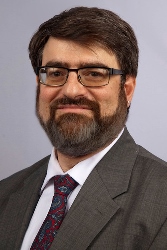 Mark Rosch
Vice President & Co-Founder, Internet For Lawyers
Mark Rosch, co-author of “The Cybersleuth’s Guide to the Internet” and 6 ABA-published books including the recent "Google Gmail and Calendar in One Hour for Lawyers", helps legal professionals navigate the free and low-cost sources on the Web to meet their due diligence requirements for investigative and background research. Mark also speaks to lawyers about how they can put the cloud-based productivity tools offered by Google to use in their practice.
Mark Rosch
Vice President & Co-Founder, Internet For Lawyers
Mark Rosch, co-author of “The Cybersleuth’s Guide to the Internet” and 6 ABA-published books including the recent "Google Gmail and Calendar in One Hour for Lawyers", helps legal professionals navigate the free and low-cost sources on the Web to meet their due diligence requirements for investigative and background research. Mark also speaks to lawyers about how they can put the cloud-based productivity tools offered by Google to use in their practice.
 Jim Sandman
President, Legal Services Corporation
After thirty years as a leader in private practice, Jim Sandman, who was appointed president of LSC in 2011, brings a unique perspective to legal aid. One continuing focus of LSC is the organization’s robust Technology Initiative Grants program, which exists to improve client access to high quality assistance in the full range of legal services. Under Jim’s leadership, the LSC has created a new blog for sharing legal technology innovations and grantee organizations have pursued diverse projects, including live chat legal assistance and automated document assembly.
Jim Sandman
President, Legal Services Corporation
After thirty years as a leader in private practice, Jim Sandman, who was appointed president of LSC in 2011, brings a unique perspective to legal aid. One continuing focus of LSC is the organization’s robust Technology Initiative Grants program, which exists to improve client access to high quality assistance in the full range of legal services. Under Jim’s leadership, the LSC has created a new blog for sharing legal technology innovations and grantee organizations have pursued diverse projects, including live chat legal assistance and automated document assembly.
 Josh Tauberer
Founder, GovTrack.us
In the open government movement, there are few “makers” of the caliber of Josh Tauberer. Josh built GovTrack, one of the world’s most visited government-transparency websites, and is leading the way to open government via automation and syndication. His format for compiling and sharing information about legislators and legislative actions is the model for government transparency websites around the world. Even the House Democratic Caucus uses GovTrack as an internal tool for tracking legislation. Josh also collaborated with and built the technology used by fellow 2013 Fastcase 50 winner, Marci Harris of POPVOX.
Josh Tauberer
Founder, GovTrack.us
In the open government movement, there are few “makers” of the caliber of Josh Tauberer. Josh built GovTrack, one of the world’s most visited government-transparency websites, and is leading the way to open government via automation and syndication. His format for compiling and sharing information about legislators and legislative actions is the model for government transparency websites around the world. Even the House Democratic Caucus uses GovTrack as an internal tool for tracking legislation. Josh also collaborated with and built the technology used by fellow 2013 Fastcase 50 winner, Marci Harris of POPVOX.
 Tracy Thompson-Przylucki
Executive Director, NELLCO
Tracy Thompson-Przylucki has been at the helm of the New England Law Library Consortium (NELLCO), an organization that has expanded to represent the interests of more than 110 law libraries under her leadership. This past year, she collaborated with the Legal Information Preservation Alliance to launch PALMPrint, a project advocating collective ownership and stewardship of print state and federal legal materials. She is also chair of the AALL Copyright Committee and has worked with the organization to educate members about the licensing of electronic resources.
Tracy Thompson-Przylucki
Executive Director, NELLCO
Tracy Thompson-Przylucki has been at the helm of the New England Law Library Consortium (NELLCO), an organization that has expanded to represent the interests of more than 110 law libraries under her leadership. This past year, she collaborated with the Legal Information Preservation Alliance to launch PALMPrint, a project advocating collective ownership and stewardship of print state and federal legal materials. She is also chair of the AALL Copyright Committee and has worked with the organization to educate members about the licensing of electronic resources.
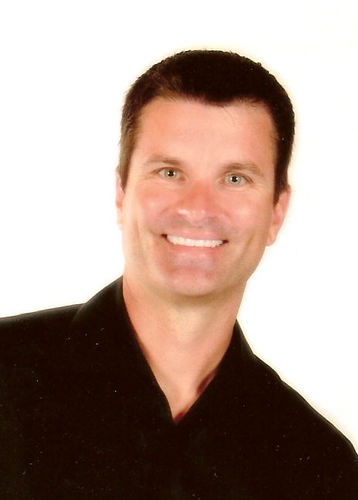 Grant Vergottini
Co-Founder, Xcential
Grant Vergottini is applying his two decades of experience in the software industry to help define data standards for legislative materials. His company, Xcential, has worked with a variety of U.S. and international jurisdictions to create tools that help manage the drafting and amendment process in law-making. He is also a key contributor to an international committee developing the Akoma Ntoso XML standard for legislation.
Grant Vergottini
Co-Founder, Xcential
Grant Vergottini is applying his two decades of experience in the software industry to help define data standards for legislative materials. His company, Xcential, has worked with a variety of U.S. and international jurisdictions to create tools that help manage the drafting and amendment process in law-making. He is also a key contributor to an international committee developing the Akoma Ntoso XML standard for legislation.
#1 Legal Research App
Winner of the prestigious American Association of Law Libraries (New Product) Award, Fastcase for iOS, Android, and
Windows Phone is used by more attorneys than any other legal app according to the ABA. Anyone may use the app for free
to access Fastcase's comprehensive legal research database on the go.
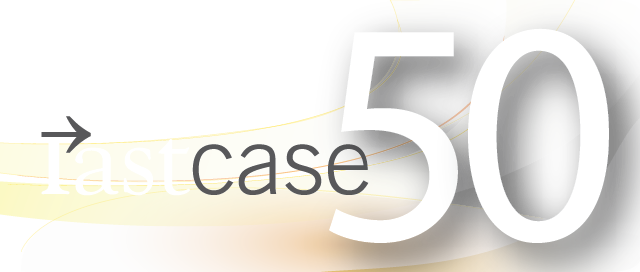
 Raj Abhyanker
CEO, LegalForce
Raj Abhyanker
CEO, LegalForce Stephen Allen
Head of Global Legal Services Transformation, PricewaterhouseCoopers
Stephen Allen
Head of Global Legal Services Transformation, PricewaterhouseCoopers Tom Barnett
Executive Director, State Bar of South Dakota
Tom Barnett
Executive Director, State Bar of South Dakota Josh Becker
CEO, Lex Machina
Josh Becker
CEO, Lex Machina Josh Blackman
Assistant Professor, South Texas College of Law
Josh Blackman
Assistant Professor, South Texas College of Law  Paulette Brown
Partner at Edwards Wildman, and Uncontested Nominee for President of the ABA
Paulette Brown
Partner at Edwards Wildman, and Uncontested Nominee for President of the ABA Matthew Burnett
Director, Immigration Advocates Network
Matthew Burnett
Director, Immigration Advocates Network Cindy Chick
Global Manager of Library Systems, Latham & Watkins
Cindy Chick
Global Manager of Library Systems, Latham & Watkins Aviva Cuyler
Founder & CEO, JD Supra
Aviva Cuyler
Founder & CEO, JD Supra Elizabeth Dobbins
UVA Law Class of 2013
Elizabeth Dobbins
UVA Law Class of 2013 Erin Egan
Chief Privacy Officer, Facebook
Erin Egan
Chief Privacy Officer, Facebook Anne Ellis
Senior Director of Librarian Relations, Thomson Reuters Legal
Anne Ellis
Senior Director of Librarian Relations, Thomson Reuters Legal Bart Epstein
General Counsel and Chief Strategy Officer, Tutor.com
Bart Epstein
General Counsel and Chief Strategy Officer, Tutor.com Ron Friedmann
Consultant, Fireman & Co.
Ron Friedmann
Consultant, Fireman & Co. Sara Frug
Associate Director, Legal Information Institute (LII), Cornell Law School
Sara Frug
Associate Director, Legal Information Institute (LII), Cornell Law School Richard Granat
Founder & CEO, The Granat Group
Richard Granat
Founder & CEO, The Granat Group Itai Gurari
CEO & Co-Founder, Judicata
Itai Gurari
CEO & Co-Founder, Judicata Marci Harris
CEO, POPVOX
Marci Harris
CEO, POPVOX Mark Harris
CEO & Founder, Axiom Law
Mark Harris
CEO & Founder, Axiom Law Allan Head
Executive Director, North Carolina Bar Association
Allan Head
Executive Director, North Carolina Bar Association William (Bill) Henderson
Professor of Law and Director, Center on the Global Legal Profession, Indiana University Maurer School of Law
William (Bill) Henderson
Professor of Law and Director, Center on the Global Legal Profession, Indiana University Maurer School of Law  Terry Hill
Director of Programs, The Florida Bar
Terry Hill
Director of Programs, The Florida Bar Ken Hirsh
Director of Law Library and Information Technology, Professor of Practice, University of Cincinnati College of Law
Ken Hirsh
Director of Law Library and Information Technology, Professor of Practice, University of Cincinnati College of Law Phil Hoare
Vice President & Chief Information Officer, Wilson Sonsini, Goodrich & Rosati
Phil Hoare
Vice President & Chief Information Officer, Wilson Sonsini, Goodrich & Rosati Tim Hwang
Founder & Human Partner, Robot, Robot & Hwang LLP
Tim Hwang
Founder & Human Partner, Robot, Robot & Hwang LLP Bob Berring, Jr.
Walter Perry Johnson Professor of Law, UC Berkeley School of Law
Bob Berring, Jr.
Walter Perry Johnson Professor of Law, UC Berkeley School of Law Daniel Martin Katz
Co-Founder & Co-Director, ReInvent Law; Assistant Professor of Law, Michigan State University
Daniel Martin Katz
Co-Founder & Co-Director, ReInvent Law; Assistant Professor of Law, Michigan State University Renee Newman Knake
Co-Founder & Co-Director, ReInvent Law; Associate Professor of Law, Michigan State University
Renee Newman Knake
Co-Founder & Co-Director, ReInvent Law; Associate Professor of Law, Michigan State University Colin LaChance
President & CEO, Canadian Legal Information Institute (CanLII)
Colin LaChance
President & CEO, Canadian Legal Information Institute (CanLII) Steve Lastres
Director of Library & Knowledge Management, Debevoise & Plimpton LLP
Steve Lastres
Director of Library & Knowledge Management, Debevoise & Plimpton LLP Carole Levitt
President & Founder, Internet for Lawyers
Carole Levitt
President & Founder, Internet for Lawyers Daniel Lewis
Co-Founder & CEO, Ravel Law
Daniel Lewis
Co-Founder & CEO, Ravel Law Adriana Linares
President & Founder, LawTech Partners
Adriana Linares
President & Founder, LawTech Partners Bruce MacEwen
President, Adam Smith, Esq.
Bruce MacEwen
President, Adam Smith, Esq. Kevin Marmion
President, William S. Hein & Company
Kevin Marmion
President, William S. Hein & Company Kingsley Martin
President & CEO, KMStandards LLC
Kingsley Martin
President & CEO, KMStandards LLC Dwight Opperman (in memoriam)
Former CEO, West Publishing Co.
Dwight Opperman (in memoriam)
Former CEO, West Publishing Co. Eric Mill
Software Developer, Sunlight Foundation
Eric Mill
Software Developer, Sunlight Foundation Charley Moore
Founder & Executive Chairman, Rocket Lawyer
Charley Moore
Founder & Executive Chairman, Rocket Lawyer Sharon Nelson
President, Virginia State Bar and President, Sensei Enterprises
Sharon Nelson
President, Virginia State Bar and President, Sensei Enterprises Jennifer Pahlka
Founder & Executive Director, Code for America
Jennifer Pahlka
Founder & Executive Director, Code for America John Phelps
CEO, State Bar of Arizona
John Phelps
CEO, State Bar of Arizona Deb Quentel
Director of Curriculum Development & General Counsel, CALI
Deb Quentel
Director of Curriculum Development & General Counsel, CALI Nik Reed
Co-Founder, Ravel Law
Nik Reed
Co-Founder, Ravel Law Bess Reynolds
Technical Services Manager of the Library & Knowledge Management Department, Debevoise & Plimpton LLP
Bess Reynolds
Technical Services Manager of the Library & Knowledge Management Department, Debevoise & Plimpton LLP Mark Rosch
Vice President & Co-Founder, Internet For Lawyers
Mark Rosch
Vice President & Co-Founder, Internet For Lawyers Jim Sandman
President, Legal Services Corporation
Jim Sandman
President, Legal Services Corporation Josh Tauberer
Founder, GovTrack.us
Josh Tauberer
Founder, GovTrack.us Tracy Thompson-Przylucki
Executive Director, NELLCO
Tracy Thompson-Przylucki
Executive Director, NELLCO Grant Vergottini
Co-Founder, Xcential
Grant Vergottini
Co-Founder, Xcential